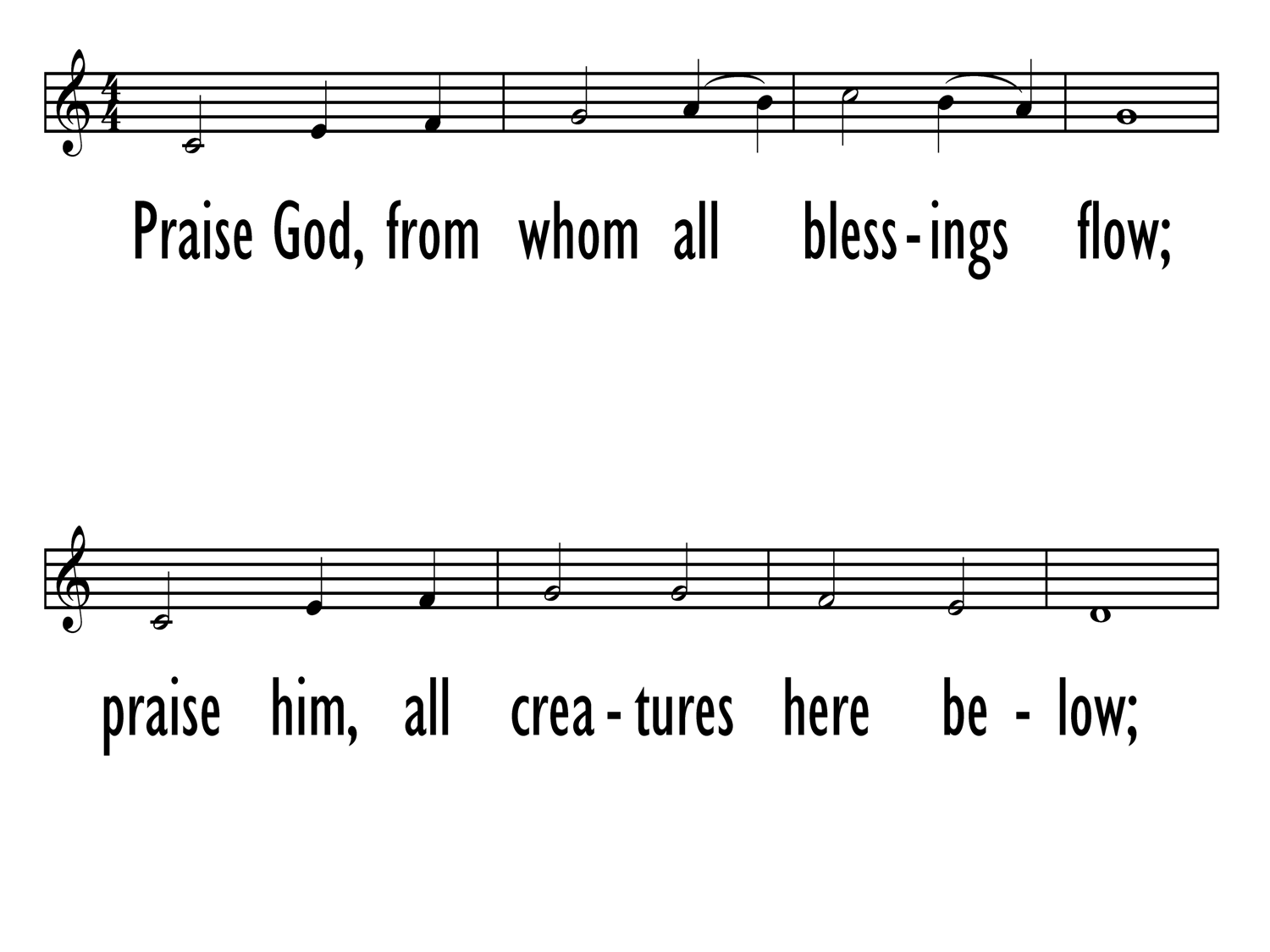- |
User Links
Praise God, from Whom All Blessings Flow
Hymn Information
- First Line
- Praise God, from whom all blessings flow
- Author
- Thomas Ken, 1637-1711
- Tune Name
- NEW DOXOLOGY
- Tune Source
- traditional Black Gospel
- Topic
- Doxologies · Responses: To Offering · Elements of Worship: Praise and Adoration
Copyright Information
- Text Copyright
- Public Domain
- Tune Copyright
- Public Domain
- Reprint/Projection Information
- Words and Music: The Words and Music are in the Public Domain; you do not need permission to project or reprint the Words and Music.
Full Text
Scripture References
Further Reflections on Scripture References
The text calls forth praise to God from the whole universe, from creatures on earth and from saints and angels in heaven. Concluding with praise for the Trinity, this doxology is likely the most well-known expression of the doctrine of the Trinity in hymn form.
Bert Polman, Psalter Hymnal Handbook
Confessions and Statements of Faith References
Further Reflections on Confessions and Statements of Faith References
How can the worshiper not conclude with such acclamations! When God is the “overflowing source of all good” (Belgic Confession, Article 1) and when he has provided all the benefits of Christ’s atonement and makes them ours so that “they are more than enough to absolve us from our sins,” (Belgic Confession, Article 22) our hearts cry out to him with praise and adoration. Therefore, Heidelberg Catechism, Lord’s Day 52, Question and Answer 128 includes the ending doxology of the Lord’s Prayer and teaches that “your holy name, and not we ourselves, should receive all the praise, forever.” And so consistent with these thoughts, Our World Belongs to God, paragraph 2 exclaims, “Our World Belongs to God! God is King: Let the earth be glad! Christ is victor: His rule has begun! The Spirit is at work: Creation is renewed! Hallelujah! Praise the Lord!” And the Belhar Confession, Section 5 concludes: “Jesus is Lord. To the one and only God, Father, Son and Holy Spirit, be the honor and the glory forever and ever.”
Praise God, from Whom All Blessings Flow
Additional Prayers
Praise God, from Whom All Blessings Flow
Tune Information
- Name
- NEW DOXOLOGY
- Key
- C Major
- Meter
- 8.8.8.8


 My Starred Hymns
My Starred Hymns






